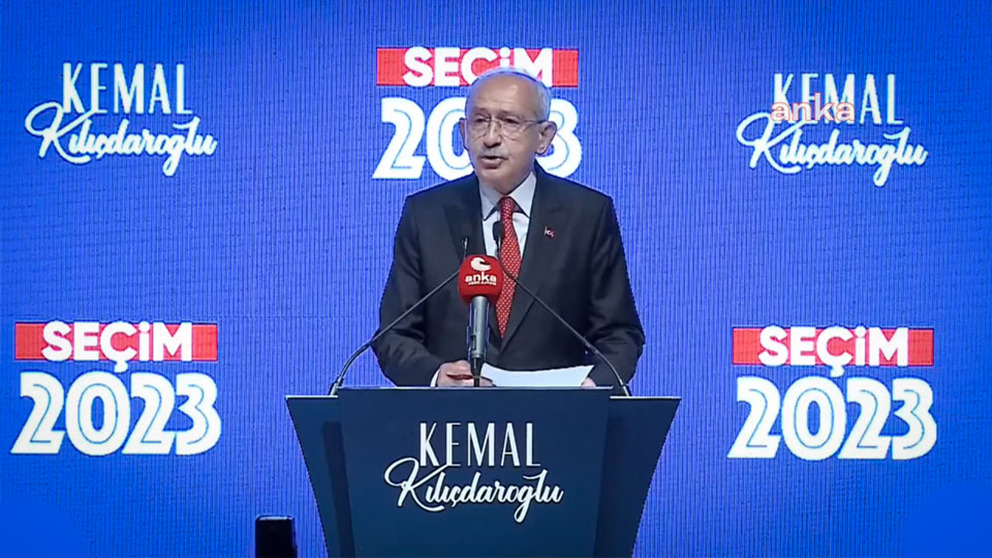A social media network spreading content supporting Turkey’s ruling Justice and Development Party (AKP) which was identified and taken down by tech giant Meta was behind the spread of a fake video clip linking opposition presidential candidate Kemal Kılıçdaroğlu with the outlawed Kurdistan Workers’ Party (PKK), according to a journalist citing Meta’s quarterly report published in August.
Turkey held parliamentary and presidential elections on May 14. While Turkish President Recep Tayyip Erdoğan’s ruling AKP won the majority of seats in parliament, a runoff election had to be held two weeks later because neither Erdoğan nor Kılıçdaroğlu managed to surpass the 50 percent threshold required for an outright victory. Erdoğan won the runoff by receiving 52.18 percent of the nationwide vote, while Kılıçdaroğlu garnered 47.82 percent.
In the run-up to the elections and afterwards, some opposition politicians claimed that certain social media accounts were used to manipulate public perception in favor of Erdoğan while spreading disinformation about his opponents during campaigning for the May 14 parliamentary and presidential elections as well as the runoff held on May 28.
Seçim döneminde yayılan montaj videoların arkasından büyük bir ağ çıktı. Üstelik yüzbinlerce dolar harcayan hesaplar.
Facebook ve İnstagram'ın da bünyesinde olduğu Meta'nın yayınladığı son rapora göre, Türkiye'de çok sayıda Facebook ve İnstagram hesabı manipülasyon yaptığı… pic.twitter.com/xCOx1qa1YR
— Altan Sancar (@altansancarr) October 12, 2023
Journalist Altan Sancar tweeted on X on Thursday that a doctored video used by Turkish President Erdoğan at an election rally in İstanbul on May 7 which showed senior members of the outlawed PKK supporting Kılıçdaroğlu’s presidential candidacy was first spread on social media by an account named Büyük Türkiye (Turkey the Great) and that that account was part of an influence campaign network Meta said it had taken down for engaging in coordinated inauthentic behavior (CIB).
More than 40,000 people, including 5,500 security force members, have been killed in four decades of fighting between Turkish security forces and the PKK, which is listed as a terrorist organization by Turkey and much of the international community.
The message Erdoğan was trying to convey was that the secular opposition leader had formed an alliance with “terrorists.”
Meta’s latest Adversarial Threat Report published in August says the platform took down multiple networks engaging in what it says was CIB before Turkey’s May elections.
The report identified two separate influence operations based in Turkey, primarily targeting the Turkish audience.
According to the Meta report, the operation that owned the Büyük Türkiye account was connected to Turkish social media agencies VOMM Creative, Skala Medya, TMSC Media and Bin945 Creative Works. The network operated “brands” with the same iconography and name across Facebook, Instagram, X aka Twitter and TikTok and used 60 Facebook accounts, 37 Pages and 20 Instagram accounts. The agencies deployed machine learning techniques, such as generative adversarial networks, to create profile photos for the fake accounts. This operation garnered about 1.3 million followers across its pages and roughly 355,000 on Instagram. It spent about $667,000 on advertising, mostly in Turkish lira.
Büyük Türkiye, Marginale, Genç Mürteci Paylaşımları, Diriliş Büyük Türkiye, Büyük Türkiye Sayfası and Gönül Adamı were some of the “brands” tied to this network.
The existence of the AKP’s internet troll army, which is used to promote AKP policies and discredit opponents and critics on social media, has long been known in Turkey.
Last year Kılıçdaroğlu, the leader of main opposition Republican People’s Party (CHP), had accused the AKP of having a social media troll army.
The second operation, tied to Turkuaz Gazetesi, an online news outlet, involved 34 Facebook accounts, 49 Pages, 107 Groups and 12 Instagram accounts. The network ran websites that pretended to be independent news platforms. These websites published content on Turkish current events, including political stories that criticized the opposition and favored the AKP as well as content on sports and entertainment.
The operation drew about 1.9 million followers across the various pages and about 1 million group members. It spent approximately $21,000 on Facebook ads.
Meta says it is concentrating on behavioral indicators rather than content to identify CIB. The company uses a combination of automated and manual detection methods and intends to refine its reporting process in response to evolving threats.
These tactics mirror concerns raised in a 2022 Orion Policy Institute report that detailed how the AKP established and used an army of internet trolls to influence political discourse.
Written by a group of Turkish academics, the report, titled “Political Astroturfing in Twitterscape: The Role of Troll Armies in Turkey’s Democratic Backsliding,” analyzed 6,252 Turkish government-sponsored accounts that were suspended by Twitter in June 2020 for “employing coordinated inauthentic activity, which primarily targeted at domestic audiences within Turkey.”
Using a combination of quantitative and qualitative analyses, the study shows how the AKP attempted to shape the public agenda through political astroturfing campaigns during elections and critical national events such as the Gezi Park protests, the corruption investigations of December 2013 and the abortive putsch of July 2016.
